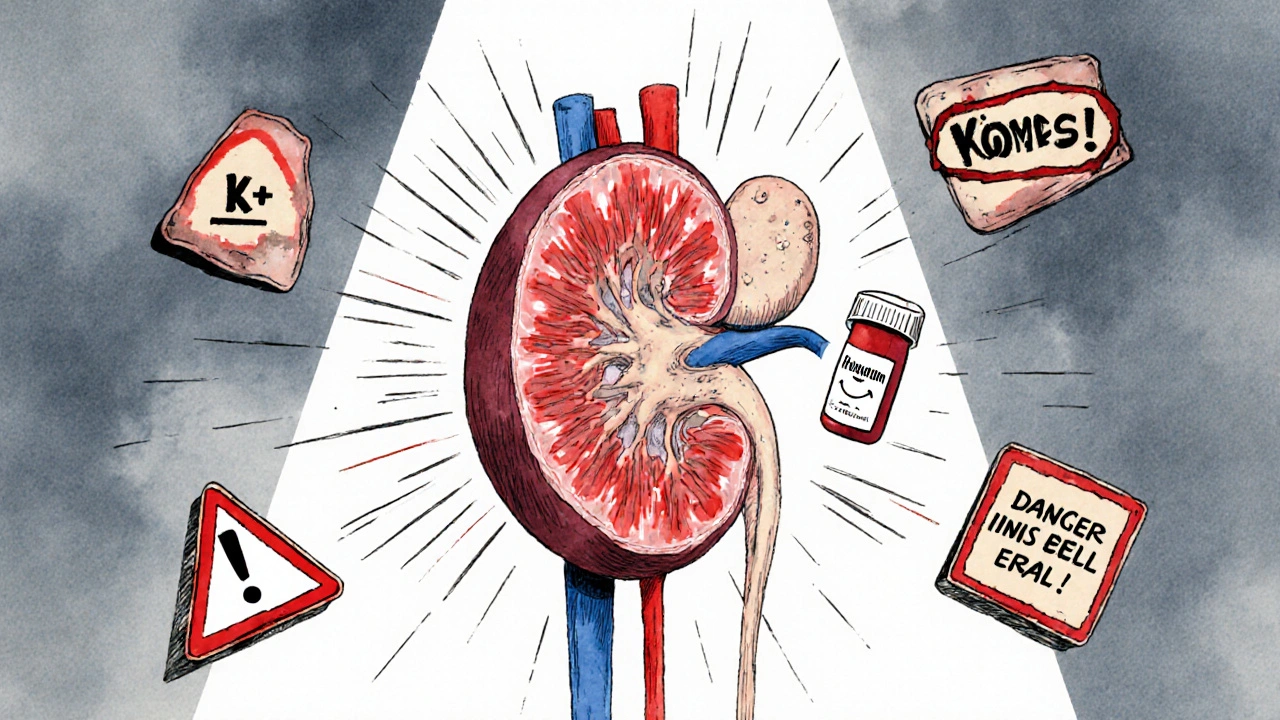Potassium levels: what they mean for your health
Potassium is one of those tiny things that can cause big problems if it’s off. Your muscles, nerves, and heart rely on the right potassium level to work. Too little (hypokalemia) or too much (hyperkalemia) can make you weak, dizzy, or put your heart at risk. Knowing the basics helps you spot trouble early and act fast.
What affects potassium levels?
Several things change potassium more than you’d expect. Common causes of low potassium include loop diuretics like furosemide, long-term vomiting or diarrhea, and not eating enough potassium-rich foods. High potassium often shows up when kidneys don’t clear it well, when you take potassium-sparing drugs (amiloride, spironolactone), or use potassium-containing salt substitutes.
Medications matter a lot. If you’re taking diuretics, ACE inhibitors, ARBs, or certain diabetes drugs, your doctor should check potassium regularly. Cancer patients and people with severe illness can also develop electrolyte problems—some treatments or conditions change how your body holds potassium.
What to watch for and what to do
Normal blood potassium is usually around 3.5–5.0 mmol/L. You can’t diagnose this by feeling alone, but the symptoms give clues. Low potassium often causes muscle cramps, weakness, constipation, or a racing heart. High potassium might cause fatigue, numbness, or palpitations—and in bad cases, chest pain or fainting.
If you suspect your potassium is off, get a blood test and an ECG. The ECG can show dangerous changes before symptoms get worse. If you’re on diuretics, ask your doctor how often to check levels—sometimes weekly when doses change, then every few months once stable.
Simple diet tweaks help mild cases. To raise potassium, try bananas, potatoes, tomatoes, beans, spinach, yogurt, and oranges. To lower potassium, avoid salt substitutes that use potassium chloride and cut back on high-potassium foods until you’ve spoken with your provider. Don’t start or stop supplements on your own.
Emergency signs—chest pain, severe weakness, sudden numbness, trouble breathing—mean call emergency services right away. High potassium can affect the heart fast, so don’t wait.
Practical tips: tell every doctor and pharmacist what meds you take, especially diuretics or heart and blood pressure drugs; keep a basic food list of high- and low-potassium items handy; and always check before using an OTC supplement that lists potassium. If your potassium keeps bouncing around, ask about medication changes—some alternatives are less likely to cause big shifts.
Want more detail? We have several articles that dig deeper into meds that change potassium (like furosemide and amiloride), electrolyte care for cancer patients, and safer drug choices. Read those if you’re dealing with a specific medicine or condition—practical info helps you make better choices with your doctor.
Trimethoprim and Potassium Levels: How This Common Antibiotic Can Raise Your Risk of Hyperkalemia
- Robin Tudge
- November 19, 2025
- 10 Comments
Trimethoprim, found in Bactrim, can dangerously raise potassium levels, especially in older adults and those on blood pressure meds. Learn who's at risk, how to prevent life-threatening hyperkalemia, and safer alternatives.
read moreThe Importance of Monitoring Your Potassium Levels While Taking Indapamide
- Robin Tudge
- May 29, 2023
- 8 Comments
As a blogger, I cannot stress enough the importance of monitoring your potassium levels while taking Indapamide. This diuretic medication, commonly prescribed for high blood pressure and edema, can lead to a significant decrease in potassium levels, causing a condition called hypokalemia. Symptoms of hypokalemia include muscle weakness, cramps, and even irregular heartbeat. To prevent this, it's essential to have regular blood tests and maintain a potassium-rich diet. By monitoring our potassium levels, we can ensure the effectiveness of Indapamide while safeguarding our overall health.
read more

